
OR
Editorial
Spare no efforts to ensure availability of chemical fertilizer
Published On: June 24, 2023 08:00 AM NPT By: Republica | @RepublicaNepal
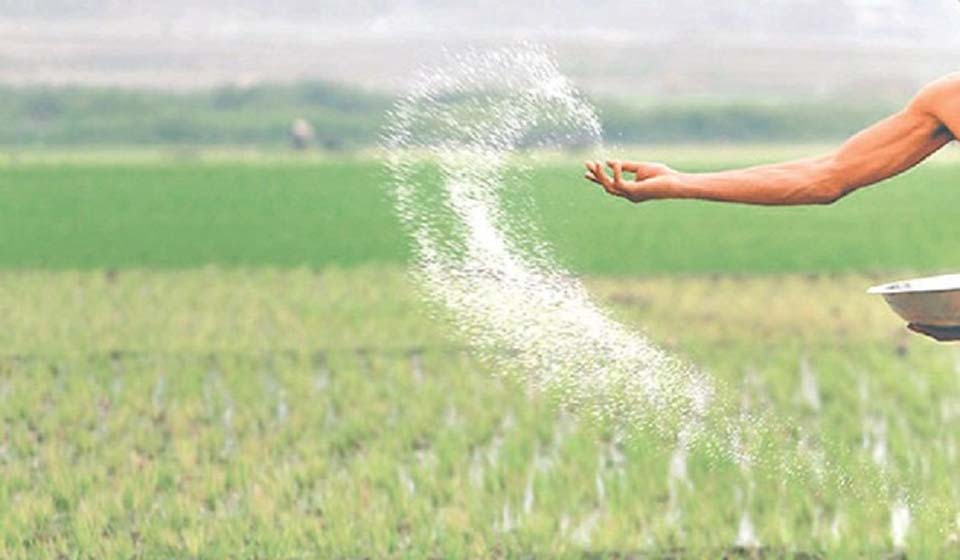
As Nepal prepares for the upcoming paddy plantation season, ensuring the availability of an adequate supply of chemical fertilizers is of utmost impor- tance. Prime Minister Pushpa Kamal Dahal's announcement of 71,000 metric tons of avail- able fertilizers in the parliamentary meeting on Friday is encouraging, but the government must leave no stone unturned in guaran- teeing a consistent and timely supply. The agricultural sector, being the backbone of Nepal's economy, depends heavily on fertil- izers for optimal crop yield and sustainable growth. Therefore, we urge the government to take proactive measures to meet the annual demand and safeguard the livelihoods of farmers. Farmers in Nepal have long grap- pled with the perennial challenge of fertilizer unavailability during crucial planting sea- sons. This situation often leads to subopti- mal harvests, jeopardizing the livelihoods of those dependent on agriculture. While recent imports of chemical fertilizers from China are a positive development, they fall significantly short of the country's annual requirement of over 700,000 metric tons.
Nepal heavily relies on imports for urea, DAP, and potash fertilizers, necessitating diversified sourcing to reduce dependency on a single country and ensure a stable supply chain. To address the dependency issue, the government should explore all possible avenues to diversify the sources of chemical fertilizers. Relying on a single country, as seen with China, poses risks due to various factors such as trade sanctions, export bans, and geopolitical conflicts. The ongoing Russia-Ukraine war and China's suspension of phosphate-rich fertilizer exports are clear examples of how such circumstances can disrupt the supply chain. The government should proactively engage with multiple countries to secure alternative sources of fertilizers, ensuring a consistent and reliable supply for the farming community. The government's signing of a Memorandum of Understanding (MoU) earlier with India for the long-term supply of urea and DAP fertilizers is a step in the right direction. This agreement is expected to provide an annual supply of 150,000 to 210,000 metric tonnes of fertilizers, bypassing the lengthy tender process and facilitating uninterrupted supply. However, it is crucial that strict follow-up is maintained to ensure effective implementation of this agreement. The government must work diligently to ensure that farmers receive fertilizers in a timely manner, particularly during the upcoming paddy farming season.
The success of Nepal's agricultural sector and its ability to ensure food security heavily relies on the availability of adequate fertilizers. Rice, as the staple cereal crop, plays a crucial role in the country's food production. The paddy plantation season is fast approaching, and farmers need a consistent supply of fertilizers to achieve optimal yields. Failing to meet the demand can have detrimental effects on food security and exacerbate the challenges faced by farmers. Therefore, it is imperative for the relevant government agencies to prioritize the implementation of agreements and take necessary measures to guarantee the availability of fertilizers when needed. Needless to say, the availability of chemical fertilizers is a vital factor in Nepal's agricultural growth and overall economic stability. The government's efforts to strengthen the supply chain and secure alternative sources are commendable. However, it is crucial to maintain a consistent and timely supply, especially during the upcoming paddy farming season. By leaving no stone unturned in addressing the challenges, diversifying source countries of their import, and effectively implementing agreements, the government can support the farming community and ensure a sustainable agricultural sector. Let us not forget that the success of the paddy crop affects the livelihoods of countless farmers and plays a pivotal role in the country's food security.
You May Like This
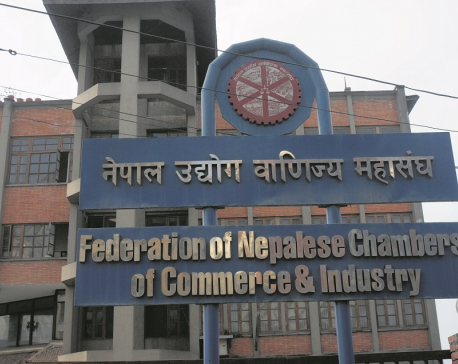
Private sector on warpath against govt’s apathy to address economic problems
KATHMANDU, Dec 5: The private sector has come down heavily on the government’s policies that have been blamed for fueling... Read More...
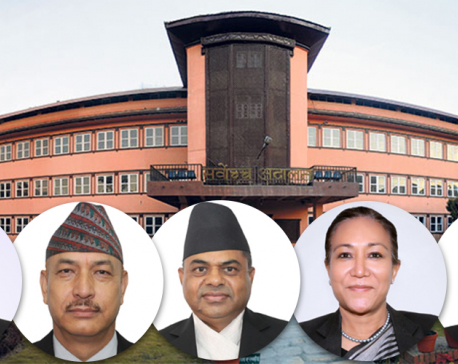
In a landmark verdict, Supreme Court reinstates House of Representatives (Read the verdict)
KATHMANDU, Feb 23: In a landmark verdict, the Supreme Court has reinstated the dissolved House of Representatives (HoR). ... Read More...
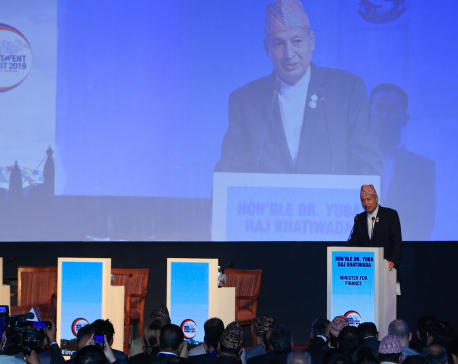
Govt assures investors of further collaboration and facilitation
KATHMANDU, March 31: With the successful organization of the two-day investment summit, the government has said that the real journey to... Read More...




Just In
- Sunkoshi-Marin Diversion Project’s tunnel construction nears completion, breakthrough scheduled for May 8
- Govt tightens security arrangement for Third Investment Summit 2024
- Pesticide residue found in vegetables in Nepalgunj
- Aam Janata Party and Samajwadi Jana Ekata Party merge
- 1,600 participants confirmed for Nepal Investment Summit
- Ilam-2 by-elections held peacefully, vote count likely to start tonight
- NEA schedules five-day power cut across Kathmandu Valley for underground cable installation
- Hundreds of passengers including foreign tourists in distress as poor visibility halts flights to and from PRIA








-1200x560-wm_20240427144118.jpg)

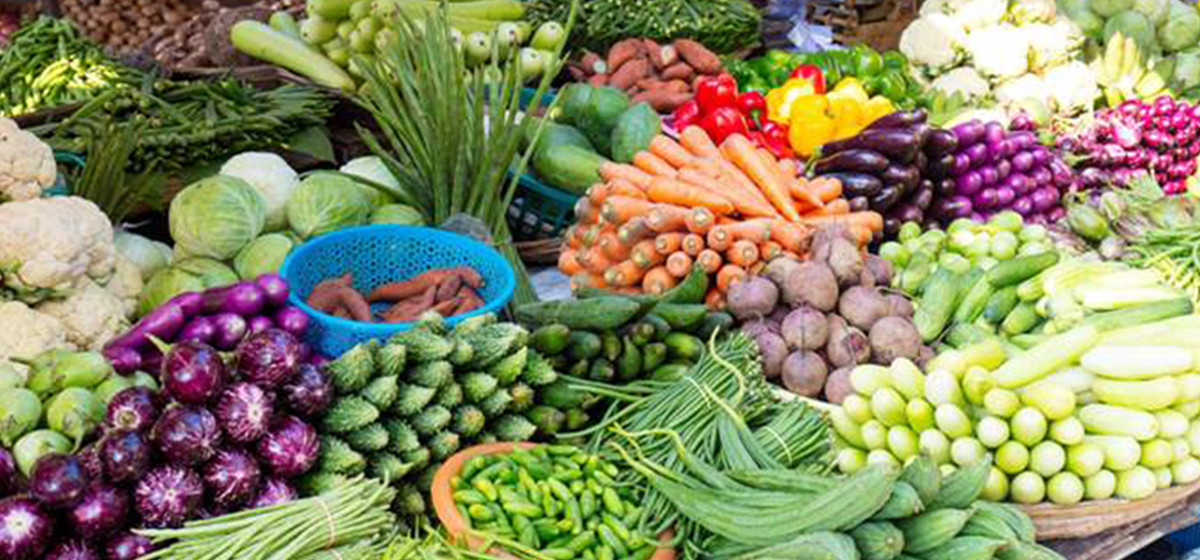
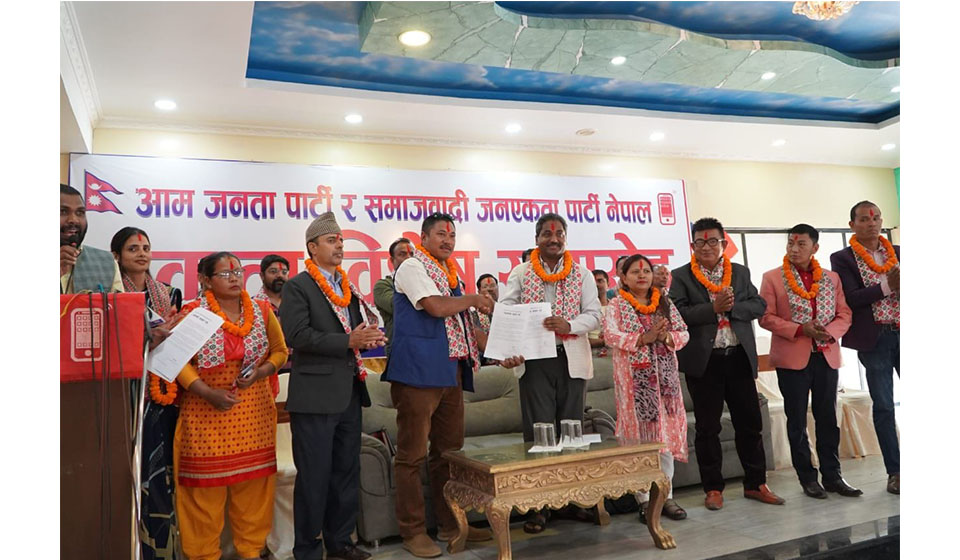

Leave A Comment